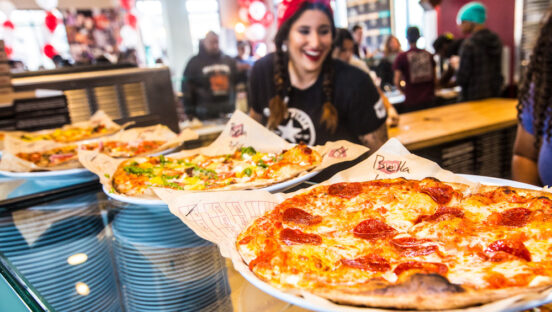Often, business owners are faced with the decision… "Should I lease or buy equipment?"
The answer can be different in each situation and you should weigh all the factors in reaching a suitable, sound conclusion. In most cases, the first factor to consider is the source and availability of cash – the general rule is that "Cash is King!"
Financing an equipment purchase with a bank loan can often be time-consuming and stressful, as you have to "jump through all of the hoops" and satisfy the lender's requirements. Typically with the purchase of equipment, you will have a cash outlay of about 10 percent of the cost of the equipment – which on equipment that costs $100,000 can be quite taxing on a small company's cash balance. On the other hand, leasing is very enticing and often easy to get into. Lease companies do not require a "down payment," but normally require first and last month's payments as a security deposit at the beginning of the lease. Typically, over the long term, a leasing decision will be more expensive, but it does have its place in many businesses where growth is a goal or where cash availability is limited. Due to the relative ease of the equipment leasing process, it also usually results in a fairly quick transaction versus traditional bank financing.
There are two types of leases: "operating" and "capital" leases. You should think of an operating lease as a "true" lease in every sense of the word. In an operating lease, you are leasing (renting) someone else's property for a specified period of time for a specified lease rate. At the end of these agreements, the title to the property is still held by the leaser and does not transfer to the leasee. A capital lease is very similar to a traditional financing arrangement whereby the lessor is merely financing the acquisition of the equipment. In capital leases, you will see a "bargain" purchase amount agreed upon at the inception of the lease so the title will transfer at the end of the lease upon payment by the leasee of the bargain purchase amount. Many times this buy-out amount will be only $1. Capital leases are used by many small businesses that know they will need the equipment for a longer period of time than the lease term. This type of lease is used merely as an alternative to traditional financing due to the lack of capital needed for a down payment and the ease of the transaction.
In assessing the economic reasonableness of leasing versus purchasing, there are certain things to keep in mind. You have to ask yourself if the lease rate is fair relative to the equipment being leased and the term of the lease. Are you getting value for the lease rate and term you are entering into? One of the ways that leasing companies pass on hidden costs to the consumer is by using a lease rate that extrapolates to a higher than normal interest rate. Calculate the true amount of interest you are being charged by backing out the cash price of the equipment from the total of ALL lease payments. Do not forget to include that first and last lease payment you make up front in your calculations as well.
You should also consider such things as sales tax in your decision. When you purchase a piece of equipment, you pay sales tax on the purchase price. In leasing, however, you will pay sales tax (in most states) on the monthly lease payment – thus you are paying sales tax not only on the purchase price but on the "financing" portion of the payment as well. This added cost gives no increased value to the equipment.
Another factor to consider when evaluating operating leases is the likelihood that you will want to get out of the lease before the term has expired. Most leases have buy-out penalties, which can be quite substantial, based on the amount of time remaining in the contract at the date of buy-out. If there is even a shadow of a chance you will want to get out of the lease before the term is expired, then an operating lease is probably not for you.
Lease companies want you to think that from a business perspective operating leases make more sense because you can deduct the entire payment amount as an expense for the company. This may be true, but consider again, when you are finished paying on the term of the lease you have no tangible asset for your company. Have you added any value at all for the company or have you merely filled a need for a few years? If cash flow or available credit concerns are an issue, then you may have no alternative but to enter into a lease. However, by paying for the equipment on a loan as a purchase, you are gaining ownership in the equipment. Any interest you pay is still deductible, as well as depreciation on the equipment. The best business decision is to add value to your company by purchasing equipment at the lowest possible interest rate and over the shortest term. Be careful to avoid the lease and its "hidden costs."














